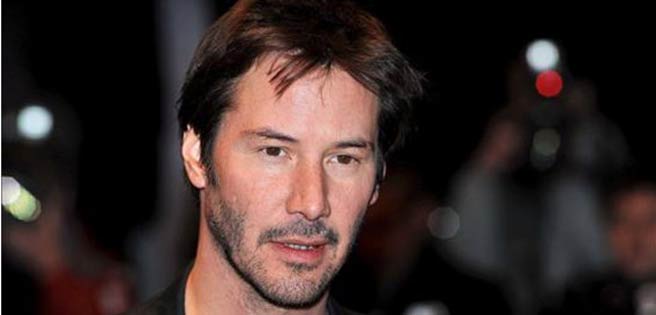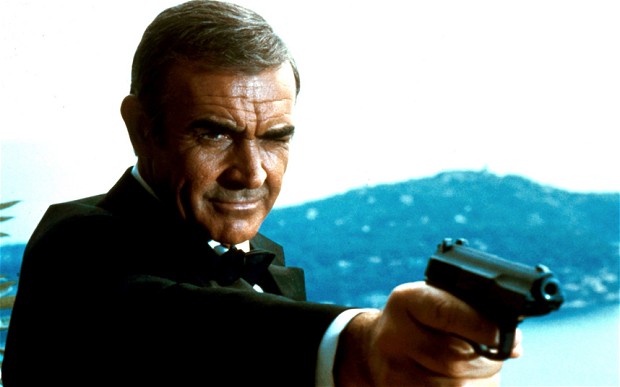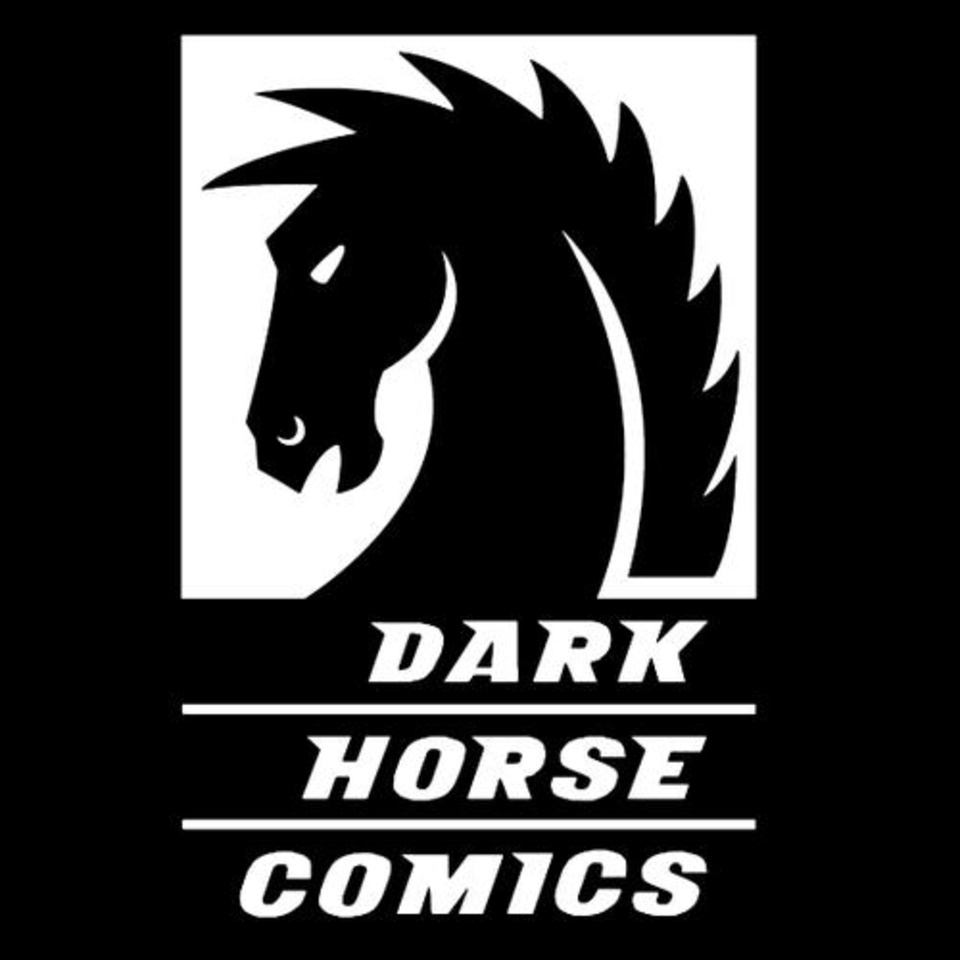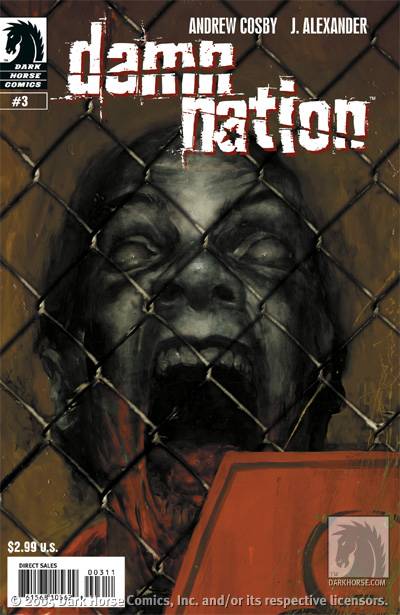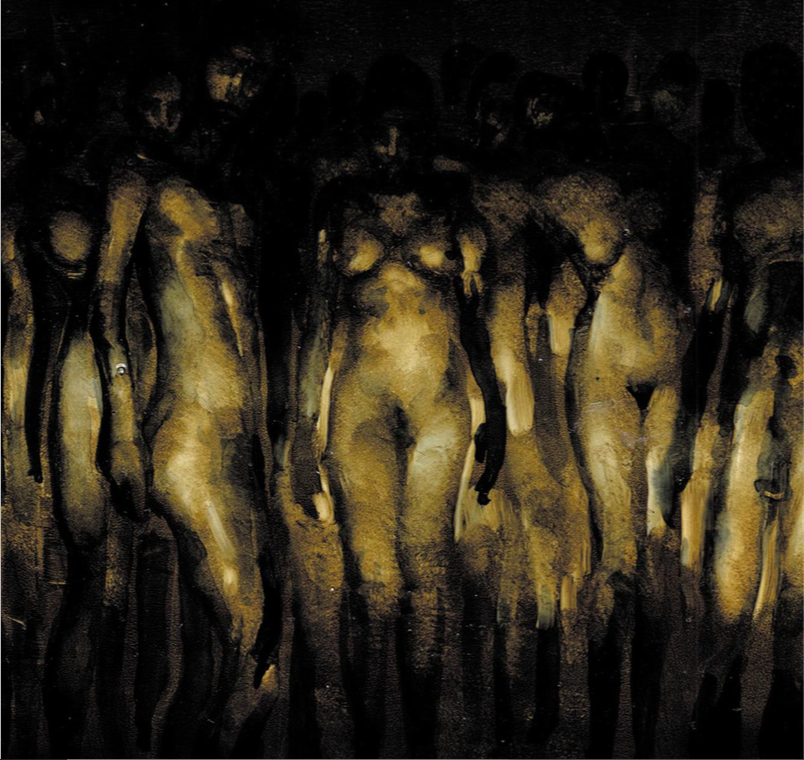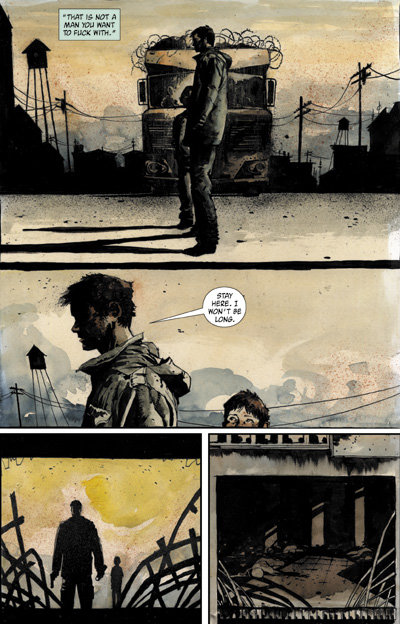The weirdness continues. Today, we go back to the turn of the millennium to check out a script that was once considered to be one of the craziest in Hollywood.
Welcome to Weird Scripts Week! This week I’ll be reviewing odd scripts, odd ideas, and writing that’s just plain odd. It will all culminate Friday when I review the strangest premise I’ve ever reviewed on Scriptshadow. To check out yesterday’s shark-tastic entry, click here. Otherwise, slather yourself in Jake Gylennhaal selfies and prepare to milk some sluglines.
Genre: Weird
Premise: After a dying scientist creates a talking cow, a team of people decide to market her into the biggest thing since prime rib. That plan goes about as bad as you’d expect it to.
About: For those too young to know who Richard Kelly is, at one point in the early 2000s, he was the equivalent of, say, Nicholas Wending Refn, a writer-director with an edge to his work, a filmmaker whose every move inspired geeks to imagine what he’d come up with next. That buzz died down after the Donnie Darko director released Southland Tales, a sprawling tale that seemed to pack every genre known to man into a single movie. What’s become lost in the Richard Kelly lore is the fact that he did a lot of writing both before and after Darko, so he has quite a few scripts out there. Bessie was written a year before Donnie Darko came out.
Writer: Richard Kelly
Details: 116 pages (Valentine’s Day draft, 2000)
Oh yeah.
You knew we had to push the envelope with Weird Week. James Bond fighting robot sharks was pretty out there, but if we wanted to truly enter Kookoo Land, we needed a script and a writer so batshit bananas, I’d get calls from the local mental asylum asking me for the writer’s contact information. That moment has come, my friends. It’s time for Bessie, the walking-talking cow.
35 year-old manager Ron McKittrick is sick of managing the career of his Justin Bieber like star, Sebastian Knight, particularly after Sebastian is accused of raping a fan. A day after quitting, he gets a surprise call from an old friend who demands that he come up to Iowa. She’s got a surprise for him.
McKittrick begrudgingly heads to the land of baseball fields that talk to you, but anger turns to delight when he learns of the reason he was brought in. His friend introduces him to Bessie, a walking talking cow with the mental capacity of a 3rd grader and a special affinity for Ashley and Mary Kate Olson. McKittrick’s friend wants him to manage a team that will introduce Bessie to the world, and make billions of dollars in the process.
This team consists of Dominique, a culturally-agnostic music video director more pretentious than an all-night poetry slam, Katherine, a lawyer with a temper quicker than Uwe Boll after a failed fund-raising campaign, and Kimberly, an ugly fat teenager who McKittrick makes his personal assitant after she tells him that if he doesn’t, she’ll start hooking for cash.
“Team Bessie” hops in a tour bus and starts travelling across the United Sates. Unfortunately, there are a few bumps along the road. When Team Bessie gets in a diner brawl with a bunch of rednecks, the cops are called in and it looks like their moo-happy secret is going to be milked onto the 24 hour news cycle. That is until Bessie screams a high-pitch yowl that somehow makes all the locals pass out while keeping Team Bessie awake and fine.
As Team Bessie gets back on the bus, they start to wonder if Bessie isn’t keeping a few secrets from them. It doesn’t take long to figure out she is. It turns out Bessie can levitate things, telepathically talk to people, and oh yeah, might be Jesus Christ!
When the group finally gets to Hollywood, Bessie’s had enough. She drops the 3rd grade act and reveals that she’s actually the smartest person-cow in the world. She demands to speak with Mary-Kate and Ashley immediately or else she’s going to blow up Los Angeles or something. It’ll be up to McKittrick to come up with a way to stop Bessie, but as we all know, once it’s out, you can’t put the cow back in the barn.
I’m trying to think of a way to discuss this script productively. I’m not sure it’s possible though.
I suppose that with “Ted” having come and gone, a movie about a talking animal shouldn’t phase us. But this is nothing like Ted. Bessie is closer to the meals they used to serve me at college. You’d go down the cafeteria line, they’d put a bunch of stuff on your tray, and afterwards, you’d try to figure out what each dish was. Those were some tough times, I tell ya. I mean, the milk at our school was blue. BLUE MILK. How’s that for a cow reference?
If I had to guess, I’d say this is a satire. But of what, I’m not clear. People maybe? The universe? I guess it could be a satire about Hollywood and our obsession with anything that’s marketed to us, but it’s just so damn weird, I’m tempted to take it at face value. Maybe this is just about a cow, who has the power of telepathy, and is the reincarnation of Jesus Christ.
Taking a step back, I did notice a few teachable moments. Whenever you write a script, one of your biggest goals is to give the reader something to look forward to. A destination. A culmination. If you’re not creating that desire within the reader, it becomes harder and harder to keep them engaged.
Remember when you were a kid in those endless family car trips? What did you keep asking? “Are we there yet?” “Are we there yet?” If you don’t keep reminding the reader where we’re going, you’re risking that same kind of agitation. It’s your job to keep reminding the reader: “Hey, this is where we’re going, this is how we’ll get there, and this is how long it’ll take.”
I’m not saying you have to provide exact times. But it should be clear how much closer we’re getting to our destination. So many writers keep their readers out of the loop and if we’re out of the loop, we can’t complete the task.
The opposite of this is something I call “drifting.” This is when you’re allowing the story to unfold, but not giving the audience any indication of where it’s going. Going back to the car trip analogy, it’s like asking your dad, “Are we there yet?” and hearing the response, “Anybody need to go to the bathroom? There’s a rest stop ahead.”
If you “drift” for too long, the audience/reader starts to lose focus. And loss of focus is the death-knell for any read. If that drift goes on for as little as five pages, the reader is done with your story.
So here, Team Bessie jumps into this tour bus but Kelly doesn’t immediately make it clear why. There’s a vague notion that we’re going somewhere with Bessie, and the marketing angle of Bessie is mentioned, but we’re still not clear why getting into this van helps achieve this goal. Are we going on some sort of 19th Century presidential campaign, where we go from town to town, introducing Bessie? I don’t know. Nobody explains it to me.
I get on writers about this all the time but it’s REALLY important. Too many writers are obscure when it comes to WHAT their characters are doing and WHY. That’s fine if you’re creating a deliberate mystery (“What’s the smoke monster?”). But if we’re talking about nuts-and-bolts story beats, you got keep us in the loop!
By the time we figure out we’re going to Hollywood to announce Bessie to the world, it’s way too late in the story. By that point I’d drifted off into several daydreams. One of which involved a talking moose named “Gerald” who had the ability to teleport.
Compare the differences between Raiders of the Lost Ark and Kingdom of the Crystal Skull. Look at how BIG of a deal was made of the Ark in Raiders (heck, it’s right there in the title!). So we’ve got something to look forward to right from the get-go. The importance of the Ark is reinforced a dozen or more times throughout the script, making us only more obsessed with reaching the destination. Imagine if the Ark had only been mentioned in a single scene leading up to the climax. Do you think our anticipation for what was in the Ark would’ve been nearly as obsessive? Of course not.
With Crystal Skull, we’re not really sure what we’re after. At first it’s a crystal skull, but that seems to be a small piece in a much bigger murkier puzzle that only gets less clear the further into the movie we go. You could see a bit of this in Tomorrowland as well. We knew we were trying to get to Tomorrowland, but we didn’t really know why, and after not knowing for so long, we just got bored and checked out. This could’ve easily been solved had the writer tried harder to keep us in the loop.
Having said all that, Bessie probably isn’t a movie that should be broken down via conventional methods. In classic “Weird Week” fashion, it creates its own rules, and you either buy into them or you don’t. Heck, you’re talking to a guy who thought Birdman was a pretentious taxidermy experiment gone awry. And there are a lot of parallels between Bessie and Birdman. To really get a feel for this script, you should check it out yourself, which is why I’m including a link. Read it and let us know how you feel!
Screenplay link: Bessie
[ ] what the hell did I just read?
[x] wasn’t for me
[ ] worth the read
[ ] impressive
[ ] genius
What I learned: Every screenwriter should write this kind of script once in their career – a script where you throw logic and form and rules out the window and let your instincts and imagination guide you. I’ll be honest with you. 99% of the time the end result will be disastrous. But doing so will teach you to TAKE CHANCES, to BE A LITTLE CRAZY, and to GO WITH YOUR GUT. And you’ll need those muscles every once in awhile if you’re going to be a great writer.
Is it possible that a James Bond script could be worse than a Sharknado script? Read on because the answer may shock you. Then eat you.
Welcome to Weird Scripts Week! This week I’ll be reviewing odd scripts, odd ideas, and writing that’s just plain odd. It will all culminate Friday when I’ll be reviewing the strangest premise I’ve ever reviewed here on Scriptshadow. So buckle up, snort the nearest hallucinogen, and get ready to mutter “WTF” at least 182 times!
Genre: Action
Premise: When a plane goes down in the Bermuda Triangle, the United States and Britain enlist none other than James Bond to find out what happened.
About: This is an old discarded James Bond script from 1976 that was deemed too weird and “out there” by the studio. The fact that Sean Connery decided to pitch in on writing duties (a man who doesn’t have a single writing credit to his name in his 50 year career) probably didn’t help.
Writers: Len Deighton, Sean Connery, and Kevin McClory
Details: 150 pages (first draft – November 11, 1976)
I admit I’m not the biggest Bond aficionado. While I appreciate the character and understand why he’s so popular, I haven’t been a fan of the franchise’s direction as of late. My frustration boiled over while watching Quantum of Solace, a film that clearly had no script to speak of. That movie seemed to be more concerned with winning a Guiness record for most countries shot in than it did entertaining an audience.
I liked the films a lot more when I was younger. My favorite scenes were always the “cool gadgets” scenes, where a character would introduce a number of killer gadgets for Bond to use on his mission. Ever since Bond went dark, however, these scenes have been dropped, distancing me even further from the franchise. Strangely enough, franchises like Batman and Mission Impossible have thought these scenes good enough for their films, making Bond look even more out-of-touch.
Luckily, today, we get to go back to a time of Bond purity, a time when James didn’t take himself too seriously. The problem is, they may have strayed too far off the reservation, as the feedback I’ve heard about this script makes Sharknado sound like a contender for the Palme D’or. Let’s find out palme d’more, shall we?
As if sensing that it would eventually be featured on Scriptshadow Weird Scripts Week, “James Bond of the Secret Service” goes cuckoo almost immediately. We start out on a seaplane that’s carrying the United Nations Secretary General. As the plane enters the Bermuda Triangle (we know this because the Secretary General says, “I’ll be okay once we get past the Bermuda Triangle”) a laser beam from an undisclosed location (Europe??) shoots the plane, killing its power, forcing it to land on the water.
Once in the water, a giant contraption rises up, “takes” the plane, and pulls it underwater, bringing it all the way to the sea floor, where we see, among other things, planes, boats, stacks of gold bars(??) and oh, AN UNDERWATER KINGDOM!!! It turns out the Bermuda Triangle has been the haunt of a city/kingdom called Arkos. Never mind the fact that to build an underwater city in the year 1976, it would’ve cost 30 trillion dollars.
Eventually, we meet the creator and president of this secret underwater society. His name is Blofeld and I kid you not, he has a white cat which he strokes throughout his conversations with everyone. Blofeld, believe it or not, actually has a very legitimate goal. He wants to rid the world’s seas of pollution. How sweet of him. And yet, it just makes things even more confusing (why does the bad guy have a noble goal??)
So he sends a wire to all the world’s leaders telling them that if they throw any trash in the ocean, even an empty potato chip bag, there’s going to be hell to pay. I’m not sure what that means, since his influence seems to be restricted to the Bermuda Triangle, but it’s enough of a threat to scare most of the leaders.
Now you may be asking, where’s James Bond in all of this? I’m glad you asked. In the first 67 pages of the screenplay, James Bond gets THREE SCENES! And two of those scenes consist of a girl applying sunscreen to his back. I’m not kidding. In a script titled, “James Bond of the Secret Service,” James Bond is onscreen for 12 of the first 67 minutes.
Eventually, the United States and Britain figure out where Arkos is and send James Bond to a nearby island to infiltrate it. Luckily, Bond has a cover-story. He’s actually a finalist in the international backgammon championships and is set to play Largo, Blofeld’s evil underling. Once there, he gets attacked by a shark, only to find out that the shark is actually a robot!! It turns out the whole of Arkos is protected by an army of robot-sharks.
Not only that, but Largo’s deranged head-scientist has found a fitting way to deliver his nukes to the offending nations. By using Hammerhead sharks! Apparently the wider eyes make it easier to rest the nukes on top of their body. A full two pages is dedicated to explaining this concept.
This all culminates when Largo decides enough is enough, and sends his army of sharks to Manhattan. His plan? To blow up the statue of liberty and then program his sharks to go into New York City sewers and attack the local population. Eventually, the city of Arkos itself uproots and heads to Manhattan, where city battles city. The End.
Oh man.
Oh dear Jesus.
This started off weird but then just got bad. And I mean really really bad. Who gives their main character – the most iconic action hero in history no less – three scenes in 67 pages?????
And get a load of some of the writing here. I’ve hand-picked some gems for you:
“He has a large shark laboratory – for cancer research.”
Largo has faded the last sentence of his own dialogue. (what does that even mean???)
“Frankly, we don’t know what’s happening in this so-called Bermuda Triangle.”
“I’ve seen that man. He’s called Emilio Largo. Runs the Shark Island op. quite close to Shrublands. As a matter of fact, I’m playing him in the backgammon finals in Nassau.”
“You’re not Fatima.” “No. She was my twin sister – she’s dead.”
“So you see, even with the brain removed, the shark will continue its motion.”
Blood trickles down the cheek of the Statue of Liberty like a tear.
Is 1976 the year LSD was invented?
They couldn’t even get the sluglines right. At the end of every slugline, instead of putting “day” or “night,” they’d put the names of the people in the scene.
The script’s biggest faux-pas by far, though, was its inadequate use of Bond. The first half-dozen times we were with him (so, maybe, the first 85 pages of the script), he was either getting sun-screen applied, sleeping with a girl, listening to his bosses talk about Arkos, or being told what to do.
A main character is supposed to be ACTIVE. Preferably, you want your protagonist making decisions on his own, driving the story with those decisions. Now you can’t always do that because the story may dictate otherwise. With Bond, for instance, he works for people. Therefore, they need to give him orders before he can act.
However, the ideal scenario is to get those orders out of the way early, and then have your hero start creating his own storyline. If he has to check back in every 10 minutes to get a new order, then you have a hero who’s 100% reactive. And reactive characters aren’t nearly as compelling as active characters.
The reason Ripley, from Aliens, is considered one of the top 5 action heroes in history is because of how active she is in that movie. Outside of the opening act, she’s making all of her choices. She’s deciding what she and the others must do. We LOVE THAT as audience members. And while I’m by no means a Bond expert, I’m guessing that we see a much more active Bond in these recent movies.
I was hoping to read five scripts this week that were so weird, you’d all be able to read them and laugh with me. I can’t even recommend “Secret Service” for that, because I know you’ll be bored out of your mind by page 30. Let’s hope for something a little more fun tomorrow. But, if you’re into self-torture, download this script and give it a try.
Script link: James Bond of the Secret Service
[x] what the hell did I just read?
[ ] wasn’t for me
[ ] worth the read
[ ] impressive
[ ] genius
What I learned: Audiences want to follow your hero. It’s okay if you throw a teaser scene into your opening before you get to your protagonist, but preferably, you should start with your protagonist or get to him as soon as possible. The interest in your story will sink exponentially the longer your hero isn’t on screen.
What I learned (practice edition): It’s advisable that you avoid adverbs in screenwriting. They just sound clunky. So here we get a couple of lines: “Bond dismally enters the plane.” And: “Bond drags himself wearily into a waiting car…” How would you change these lines to eliminate the adverbs, yet still get the requisite feeling across? Show off your writing skills in the comments section below!
I was thinking, the comments go off-topic so much that why don’t we just put up a post that’s all about staying off-topic?! You can talk about anything and get it out of your system! Buuuuuuuut… I’d rather you pitch your loglines to others to get some peer feedback, talk about The Scriptshadow 250 Contest (only 54 days left!), discuss the awesome fact that none other than DARK HORSE contacted Adam yesterday about his script (I’ll update you when I know more), or guess what scripts will be reviewed next week during “Weird Scripts Week” (I still have one slot semi-open, so if you can think of a weird script you think I should review, let me know). I haven’t read the Friday script yet but I can assure you, from the premise alone, it’s going to be the craziest f&%*ing script ever, and a sure bet to end up on this year’s Black List.
A rare treat. An extremely solid amateur script! But will not owning the rights to the material doom the screenplay??
Next week is a SPECIAL WEEK here on Scriptshadow. It’s WEIRD SCRIPTS WEEK. I’ll be reviewing five really strange scripts, saving the weirdest and oddest for Friday. Your life will never be the same after you hear about that last script, I promise you. This means there will be no Amateur Offerings this weekend. So check out Damn Nation instead. It’s a good script!
Genre: Horror/Action-Thriller
Premise (from writer): Five years after a plague has overrun the United States, turning most of the nation into feral vampiric creatures, a Special Ops unit from the President’s current headquarters in London is sent back into the heart of the US in a desperate attempt to find a group of surviving scientists who claim to have found a cure for the disease… but not everyone wants to see America back on its feet.
Why You Should Read (from writer): I believe screenplays are evolving. With the advances of technology in the last couple of decades such as the internet, computers, ipads, smartphones, etc, screenplays can be more than words on paper, they can be visual and even interactive experiences. I’m not the first and I won’t be the last person to integrate artwork into my screenplay, but I think this approach, if done right, can add a lot of value to a project. Integrated artwork is just the tip of the iceberg though. I believe soon people will be adding a lot more elements, such as photo references, storyboards, video, sound effects, music, and other audio-visual components embedded into their scripts. The possibilities are endless. — However, I know that my view on things is going to be vastly unpopular right now. I think most people will have an old school attitude and believe that writers should write, leaving the fancy bells and whistles to someone else. — With that said, I do believe nothing is more important than the words themselves. Above all else, I hope my script is judged on the words, not the images. Everything else I’ve added is just a bonus.
Writer: Adam Wax (Based on the comic, “Damn Nation,” written by Andrew Cosby and illustrated by J. Alexander)
Details: 110 pages
I guess you could say today’s entry is a little controversial. We don’t usually review adaptations on Amateur Friday. But there’s nothing inherently wrong with writing one. I know some people get upset by it but as long as you give credit where credit is due, which Adam does, it’s fine.
As far as whether it’s legal to adapt something you don’t have the rights to – it’s perfectly legal. If you went and wrote your own Fifty Shades of Grey script tomorrow, nobody’s going to come knocking at your door. The only time it becomes illegal is if the studio buys it and turns it into a movie without obtaining the rights. And even then, it’s not you who gets sued, it’s them.
Wax has also decided to infuse artwork from the comic into his script. As I’ve stated before, I have no problem with this either. I think, under the right circumstances, art can enhance the read. I just wasn’t a particular fan of THIS art. I’d prefer art that actually gives me a clear idea of what’s going on. This art here is almost the opposite – as evidenced here.
The setup for Damn Nation is pretty straight forward. Five years ago, a lost Russian tanker wanders into U.S. waters, full of dead bodies. When a group goes to inspect the ship, they find that these “dead” bodies aren’t as “dead” as they thought. We cut to five years later, where we learn that that event was the beginning of a fast-acting virus that took down the entire United States.
Back in Britain, where the remainder of the United States government now resides, they receive a signal from Buffalo, New York, with a simple message: “We have the cure.” The Americans and the Brits put together a team of about a dozen soldiers and send them off to Buffalo to see if there’s any truth to this message.
The team is led by the always cynical Captain John Cole. He’s joined by the non-shit-taking Lieutenant Emilia Riley, a Brit who’s not a huge fan of the American way. The two command a group of both Americans and Brits, and head into Buffalo where they immediately find our scientist with the cure.
Except that’s where shit starts going wrong. A sub-division of the team turns on them, killing everyone within sight. They try and kill Cole and Riley, who just barely escape with the doctor, a few other soldiers, and the cure. We eventually learn that the Brits, the Chinese, and the Russians, like this new world where the U.S. is no longer a player. And if there’s a cure, that puts the U.S. back in the mix.
Cole and Riley are thrust into a dangerous country where these… things lurk around every corner. They’ll need to come up with a plan not only to avoid them, but find a way to safety, and find someone who actually wants to use this cure to save the United States.
In the spirit of being completely honest, permission-less adaptations are usually the worst scripts I read. I’m not sure exactly why this is, but my guess is, these scripts tend to come from first-time screenwriters who fall in love with a property (movie, comic book, what have you) and want to write a movie in that universe. They do this before learning how to actually screen-write, which is why the scripts are often complete messes.
My advice to writers thinking about adapting a high-profile property you don’t have the rights to: don’t do it. I can guarantee that the rights to anything you’ve found are already owned by some producer working for some studio, which means you have approximately ONE BUYER for your script. If that one buyer doesn’t like what you’ve done, you’re shit out of luck.
There is a less cynical side to the approach, though. If you write ANYTHING that’s good, whether it sells to that single buyer or not, the town will take notice. And while you may not sell this specific script, you’ll get tagged as a good screenwriter and get some meetings out of it.
I don’t know where Adam Wax is in his screenwriting career, but he deserves some meetings after Damn Nation. This script is good. The first word that comes to mind is: polished. This isn’t something that was thrown together quickly, like so many amateur scripts we read here seem to be. Rather, there’s a clear structure to the story, and Wax moves it along quickly.
We start with that great teaser – A Russian boat that’s been lost for 15 years. Inspecting that boat to find 200 dead bodies that suddenly come to life. If that doesn’t grab you, you are incapable of being grabbed.
We don’t waste any time when we jump to five years later either. We immediately jump to the “cure” signal and within pages, our team is on their helicopters, heading to the U.S. Spec scripts HAVE TO MOVE FAST. And Damn Nation eschews the Prius approach in favor of the Lamborghini.
The first big twist is maybe a little predictable (the soldiers turning on their leaders), but Adam’s such a good writer, he makes it work. And it places our characters into a seriously terrifying situation – being alone in a country dominated by blood-sucking creatures with no one to come save them.
I often discuss on this site using ideas that DO THE WORK FOR YOU. This is the kind of idea that does the work for you. Putting your characters in this kind of peril ensures that you’ll have a bevy of terrifying scenes and sequences. Every moment counts. Every wrong choice could lead to death. There’s never a moment here where the audience can sit back and relax, which is a sign of a really good story.
Some of the character stuff is really good too. For example, Captain Cole isn’t just some tough-as-nails vanilla captain. He learns that the whole reason he was picked to lead this mission is because he’s been such a terrible captain (killed two platoons in Afghanistan). He was chosen for the specific purpose of ensuring failure. Cole is going to have to dig down deep and overcome all his demons and past failures in order to prove to others, but more importantly, himself, that he can lead.
If you’re a fan of The Walking Dead, 28 Days Later, or really any post-apocalypstic literature, I can guarantee you’re going to LOVE THIS. I could see this being a hit movie TOMORROW. But I don’t know who owns Damn Nation, and I don’t know if whoever has the rights plans on making the movie anytime soon. But they should. And they owe it to themselves to at least check out Adam Wax’s version.
Script link: Damn Nation
[ ] what the hell did I just read?
[ ] wasn’t for me
[xx] worth the read
[ ] impressive
[ ] genius
What I learned: I’ll say it again, guys. A spec script NEEDS TO MOVE QUICKLY. The specs that never seem to slow down, that never allow the reader to sit back and relax – these scripts have a HUGE advantage over the slow-moving specs with stories that take forever to get going, and which spend too much time sitting around in that second act. If you can, I’m BEGGING YOU to infuse URGENCY into your spec idea. Urgency and specs go together like peanut butter and jelly.
The absolutely FREE Scriptshadow 250 Screenplay Contest deadline is just 56 days away! Make sure you’re preparing your entries!
A lot of what we talk about here at Scriptshadow comes from a reactionary place. We assess someone’s work and then discuss how it either a) worked or b) didn’t. And if it didn’t, we discuss how it could’ve been fixed, or how it could’ve been done better. This is all well and good, and we certainly learn a lot from it. But it doesn’t address one of the hardest things about screenwriting: the blank page.
Staring at a blank page is a whole different ball of wax than trying to come up with a solution to a bad scene.
There are two types of “blank page” problems. There’s the “On the fly” blank page problem and there’s the “Outlined script” blank page problem.
The “On the fly” problem refers to writers who are writing their script on the fly. They didn’t start off with an outline. They had their idea and figured they’d jump straight into the script. This method is notorious for leading to a lot of blank page problems. Since you didn’t outline, you have no idea where your script is headed, and when you don’t know your destination, it’s hard to map out a route to get there.
For this reason, the writer eventually runs out of scenes (curiously, they almost always peter out around page 45), and subsequently start “grasping at straws.” They write to shock, they throw a twist or two at the reader, all to energize what they perceive to be a dying story, not realizing that it’s the lack of direction in the first place that’s the problem.
To these writers I say, “This is why you outline.” You outline to destroy the blank page. If you’ve already figured out your ending, and you’ve come up with a general idea for the majority of the scenes in your script, you’ll at least come into each scene with a plan. And plans mean less blank pages.
If outlining scares you, here’s another option. Make sure that every character in your screenplay HAS A GOAL. If you give every character a goal, then every time you cut to one of those characters, you’ll know what scene to write to push them closer to that goal.
If you know, for instance, that your 5th most important character, Tracy, is desperately trying to make enough money to pay for college tuition next year, then you know to put her in a few job interviews. And if she doesn’t get hired, and subsequently gets more desperate, you know she might start doing some unsavory things to get that money.
On the contrary, if all you know about Tracy is that she’s your main character’s sister, then when she comes around, you won’t know what to do with her, and the story will drift or come to a stop when she arrives.
To use a recent example, look at Mad Max: Fury Road. The goals were clear from the start. Furiosa wanted to get back to her hometown. And Max wanted freedom. The bad guy, of course, wanted to get his five wives back. Every scene was dictated by the desires of those three characters, which is a big reason why not a single scene in that movie felt wasted.
Now if you’re a seasoned screenwriter, outlining is a huge part of your process. And for the truly hardcore, you’ve likely outlined every scene in your script (scene 1 to scene 60!). To these writers, having no idea what to write next isn’t really the problem. The problem is HOW to write what you write next.
Let me give you a real world example. A couple of weeks ago, a writer came to me needing to write a scene that took care of two things – introducing his main character’s wife, and conveying the fact that the two were struggling financially.
Notice that we know what to write, but we don’t know how to write it. I mean sure, we could take the obvious route. Our main character comes home from work, and there his wife is, at the dining room table, bills spread about everywhere, looking dire. Does the job, right? Sure.
But is it a good SCENE?
No.
Any time you give us the same scene/solution that the average Joe on the street could’ve come up with, you’ve given us a boring scene. Even the best version of that scene gives us information (exposition) and nothing more. Which puts us right back at the blank page. So what the hell do we write?
I’m going to let you in on a big secret here – the key to writing a scene that destroys the blank page. Are you ready?
CONFLICT
You want to approach your scene with the goal of injecting some conflict into it. And by conflict, I mean an imbalance that needs to be resolved. Maybe one character is mad at the other and starts yelling at them. Maybe one character is mad at the other and is passive aggressive towards them. Maybe one character is hiding a secret from another character. Maybe the two characters are avoiding talking about something. Maybe the characters desperately want to be together but can’t for some reason. Maybe the characters are fighting off a common enemy.
Conflict comes in many forms. But the important thing is that once you include conflict in a scene, you move away from merely conveying information, and you instead add an element of entertainment. Telling us that these characters are in financial straights is boring. Having one of the characters fed up that they’re in financial straights and taking it out on their partner in a passive-aggressive manner, now you have a scene.
I can already see it. The wife doesn’t NEED to have these bills out for when her husband comes home. But she wants to make a point. She’s reminding him that he can’t keep ignoring their reality. They’re in financial straights and he’s got to do something about it. He shakes his head, storms by her, and all of a sudden we have tension in the air. We have conflict. We have a scene, even if it’s a mere quarter of a page long.
But let’s say that one of the things you ALSO want to convey in this scene is that our husband and wife characters love each other very much. Having them pissed off at each other may make for a juicier scene, but it conveys the exact opposite about their relationship than what you want. Okay, that’s fine. Just shift the conflict so that it’s external.
Maybe our husband gets home, and the neighbors are, once again, playing their music loudly. As our couple work out which bills they need to pay first to stay above water, the music only seems to get louder, until the husband can’t take it anymore. He storms over to the neighbors and tells them off.
Remember, the most boring scenes in any script are the scenes where nothing’s happening. And “nothing’s happening” is universal code for “No conflict.” So always look for an angle into the scene where some kind of conflict is taking place, even if it’s subtle. Assuming that you know what needs to happen next in your script, the right level of conflict could be the key to busting past that blank page.


